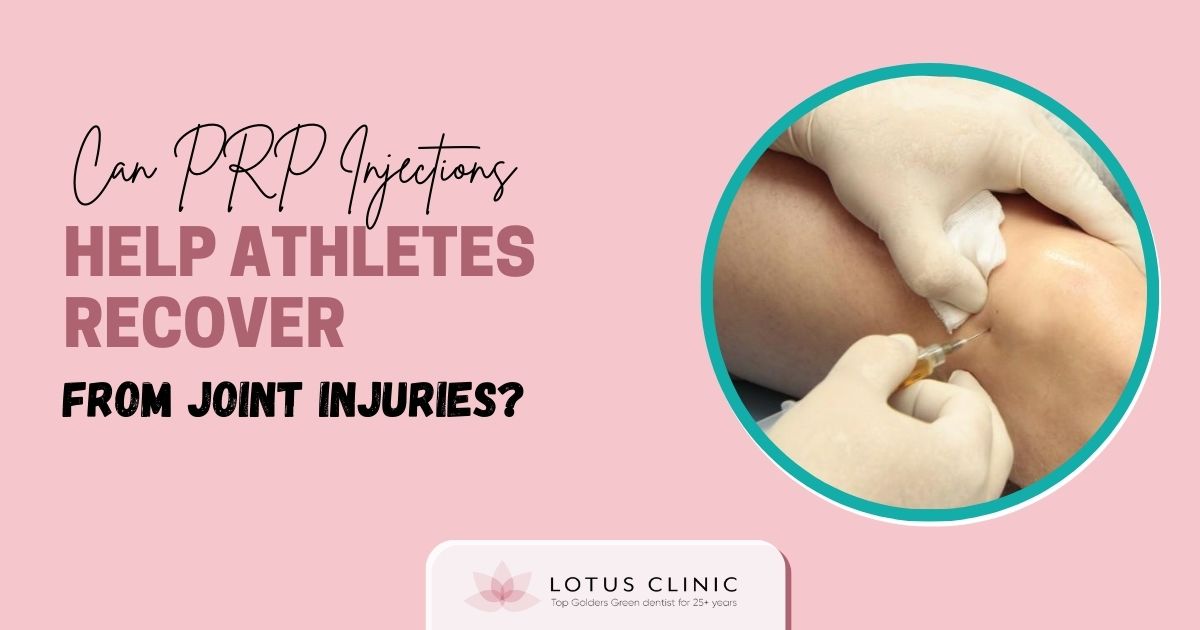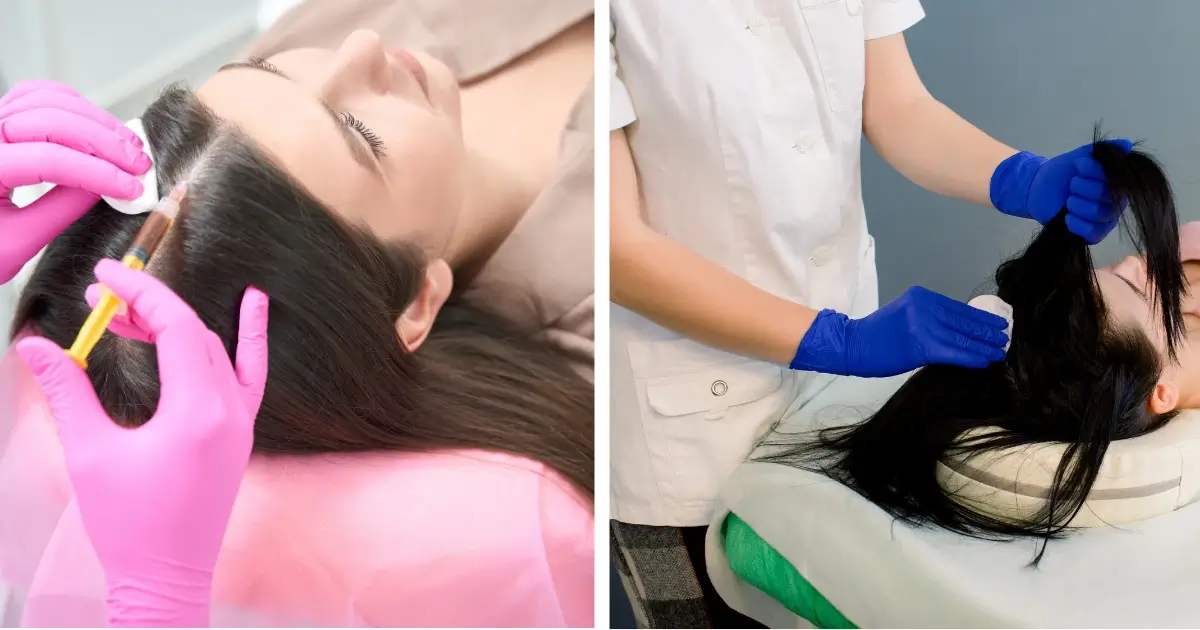943 Finchley Rd, London NW11 7PE
Can PRP Injections Help Athletes Recover from Joint Injuries?

Athletes push their bodies to the limit, and with that comes the risk of joint injuries. Whether it’s a knee sprain, shoulder tear, or tendon issue, joint pain can sideline even the most dedicated athletes.
Traditional treatments like physical therapy or surgery may work, but what if there’s a faster, less invasive solution?
Enter PRP (Platelet-Rich Plasma) therapy—an exciting treatment gaining popularity for its potential to speed up recovery and promote healing in injured joints.
PRP injections use the body’s own blood, concentrating platelets and growth factors to stimulate tissue repair. Athletes from all sports are turning to this innovative treatment to get back on track faster.
But how effective is PRP, and what can athletes truly expect from it?
In this blog, we’ll dive into the science behind PRP injections, explore how they help athletes recover, and share real-world insights into its benefits. If you’ve been curious about PRP and how it can aid in your recovery, keep reading. We’ve got everything you need to know.
What Are PRP Injections? Understanding the Basics
PRP (Platelet-Rich Plasma) injections harness the healing power of your own blood to aid in tissue recovery. The process starts with a simple blood draw, followed by centrifugation to concentrate platelets and growth factors. This enriched plasma is then injected directly into the injured joint or muscle, promoting faster healing.
- PRP contains platelets, which help accelerate tissue repair and reduce inflammation.
- Growth factors in PRP stimulate cell regeneration and collagen production.
- The injection targets damaged tissues, speeding up recovery.
- PRP aids in healing muscles, tendons, and ligaments, promoting joint function.
This process offers a non-invasive alternative to surgery and can significantly reduce recovery times for athletes, giving them a chance to return to their sport sooner.
Common Joint Injuries in Athletes and How PRP Helps
Athletes face various joint injuries that can sideline them for weeks or months. From sprains to tears, these injuries are a common part of active sports. PRP injections have become a go-to treatment to help athletes recover faster.
- ACL Tears: PRP speeds healing of torn ligaments by reducing inflammation and promoting tissue repair.
- Rotator Cuff Injuries: PRP can regenerate damaged tendons and ease shoulder pain.
- Tendonitis: PRP accelerates the healing of tendon injuries by stimulating cell activity.
- Knee Injuries: It reduces pain, inflammation, and swelling, promoting tissue regeneration.
PRP offers an advantage over traditional treatments by promoting natural healing, reducing recovery time, and often avoiding the need for surgery.
How Effective Are PRP Injections for Athletes’ Joint Injuries?
PRP injections have shown promise in treating joint injuries for athletes. Studies and real-world cases highlight their effectiveness in promoting healing and reducing pain.
- Studies indicate PRP can speed up recovery and reduce inflammation in injured joints.
- Clinical trials show positive outcomes for athletes with tendon, ligament, and cartilage damage.
- Professional athletes like golfers, tennis players, and football players have seen successful outcomes with PRP therapy.
- Research shows PRP injections reduce the need for surgeries and long recovery periods.
While results can vary, the growing body of evidence suggests that PRP injections offer an effective treatment for many joint injuries.
The Procedure: What to Expect When Receiving PRP Injections?
Understanding what happens during a PRP treatment can ease any concerns athletes may have. The procedure typically involves several key steps, all of which are quick and relatively simple.
- Consultation: Your doctor assesses the injury to determine if PRP is suitable for you.
- Blood Draw: A small sample of blood is taken from your arm.
- Centrifugation: The blood is spun in a centrifuge to separate the platelets.
- Injection: The PRP is injected into the injured area.
- Recovery: Most patients experience minimal downtime, with recovery taking a few days to weeks depending on the injury.
Pain is usually manageable, and athletes can resume light activities soon after the injection.
Benefits of PRP Injections for Athletes
PRP therapy offers numerous benefits for athletes looking to recover from joint injuries. Its natural, non-invasive approach helps promote healing with minimal risk.
- Faster Healing: PRP accelerates tissue repair, reducing recovery time.
- Non-Invasive: Unlike surgery, PRP avoids the risks associated with incisions and anesthesia.
- Reduced Risk of Infection: Because PRP uses the patient’s own blood, the chances of infection are significantly lower.
- Faster Return to Sport: PRP helps athletes get back to their training and competition quicker.
These benefits make PRP an appealing option for athletes wanting to return to peak performance without the long recovery times of traditional treatments.
When Should Athletes Consider PRP Therapy for Joint Injuries?
PRP therapy is a valuable option for athletes, but it’s important to know when it’s the right choice. Athletes should consider PRP injections based on the severity of their injuries and other factors.
- Ideal Candidates: Athletes with moderate to severe joint injuries that haven’t responded well to other treatments.
- Age & Health: Younger, healthier individuals tend to experience better results from PRP therapy.
- Before Surgery: PRP is often considered before opting for surgery, as it can sometimes heal the injury without the need for invasive procedures.
PRP injections offer a promising solution for athletes dealing with joint injuries. By utilising the body’s natural healing powers, these injections can help reduce downtime and speed up recovery. Whether you’re recovering from an ACL tear or tendonitis, PRP therapy can provide a less invasive alternative to surgery. If you’re an athlete looking for a way to heal faster and get back in the game, PRP injections might be the right choice.





